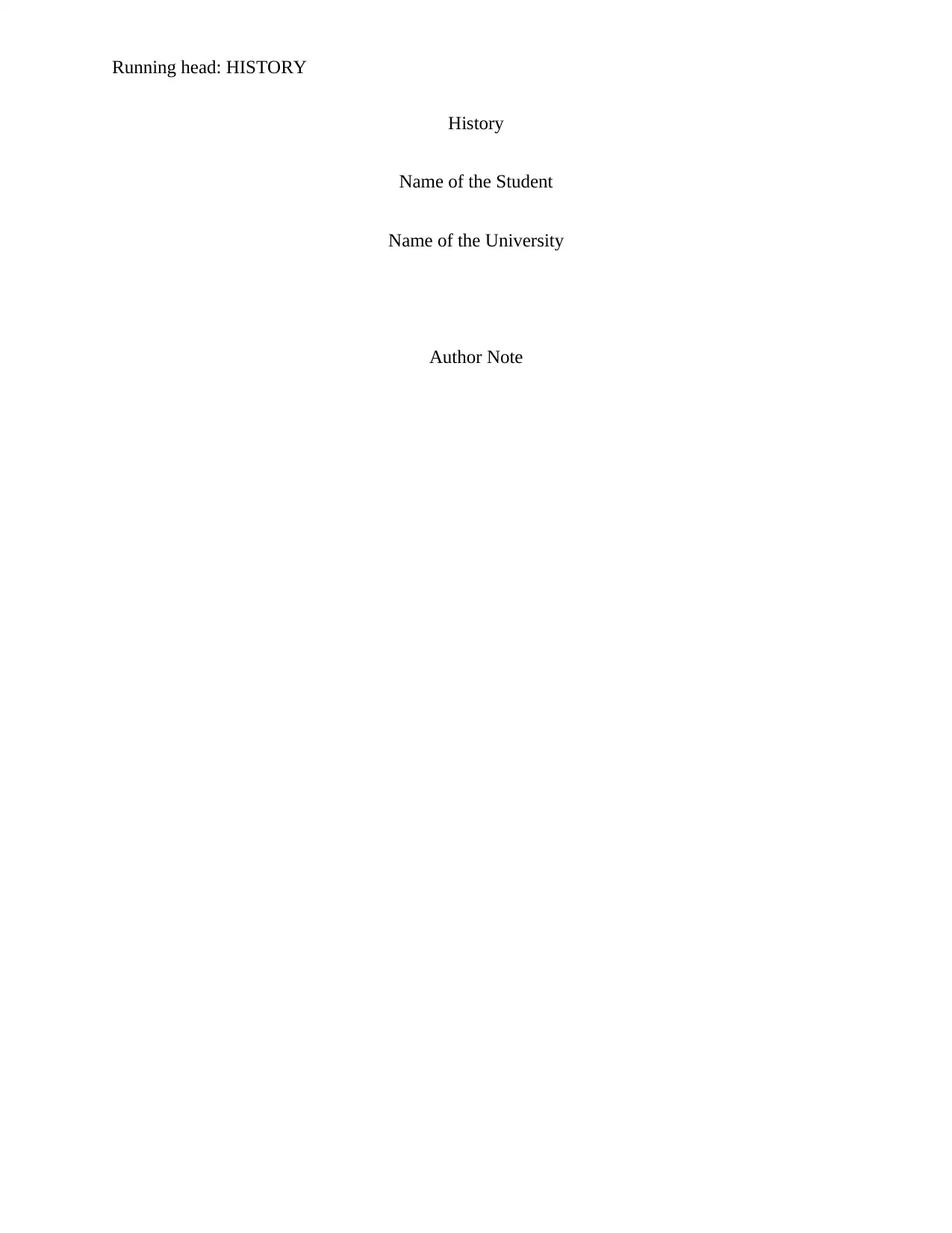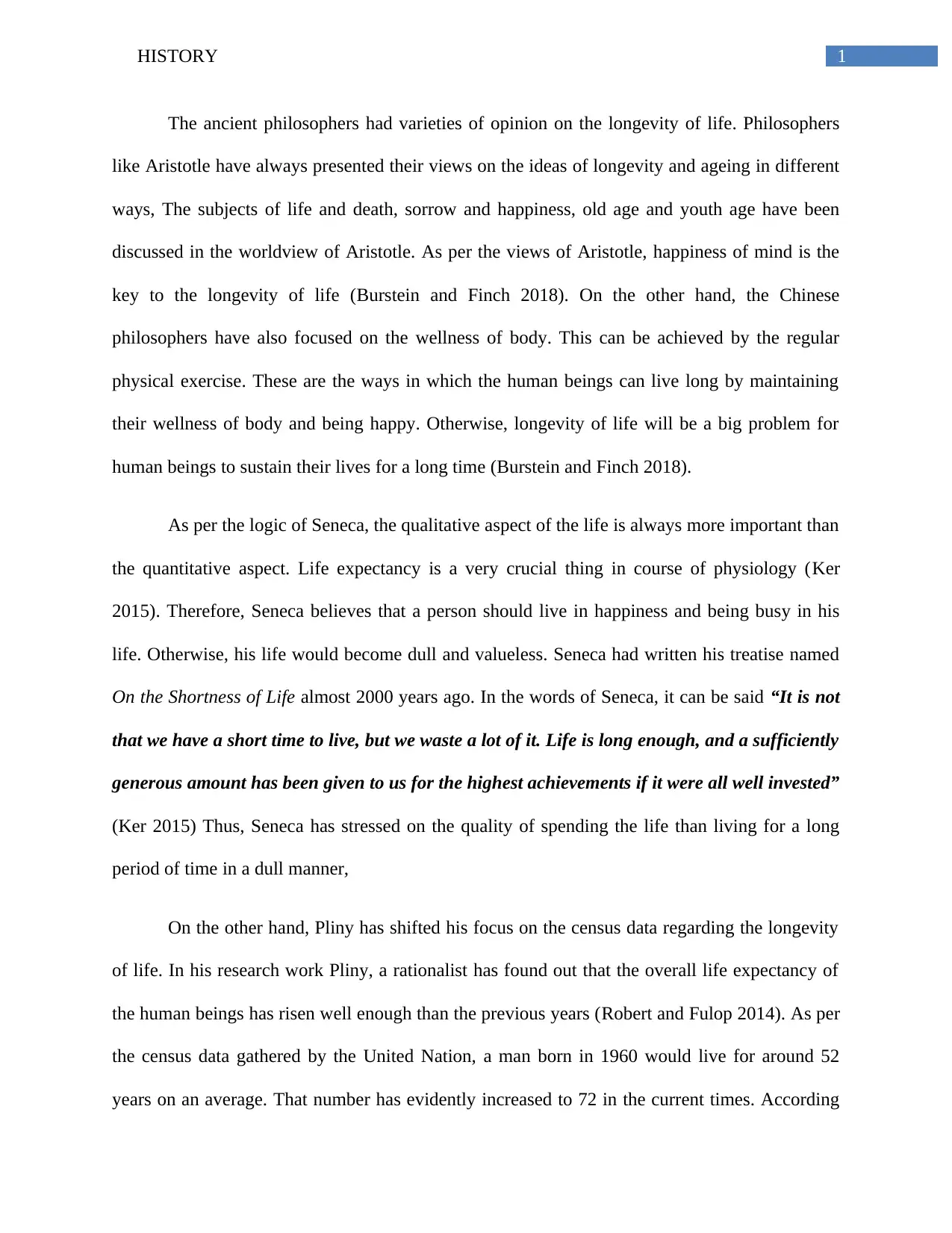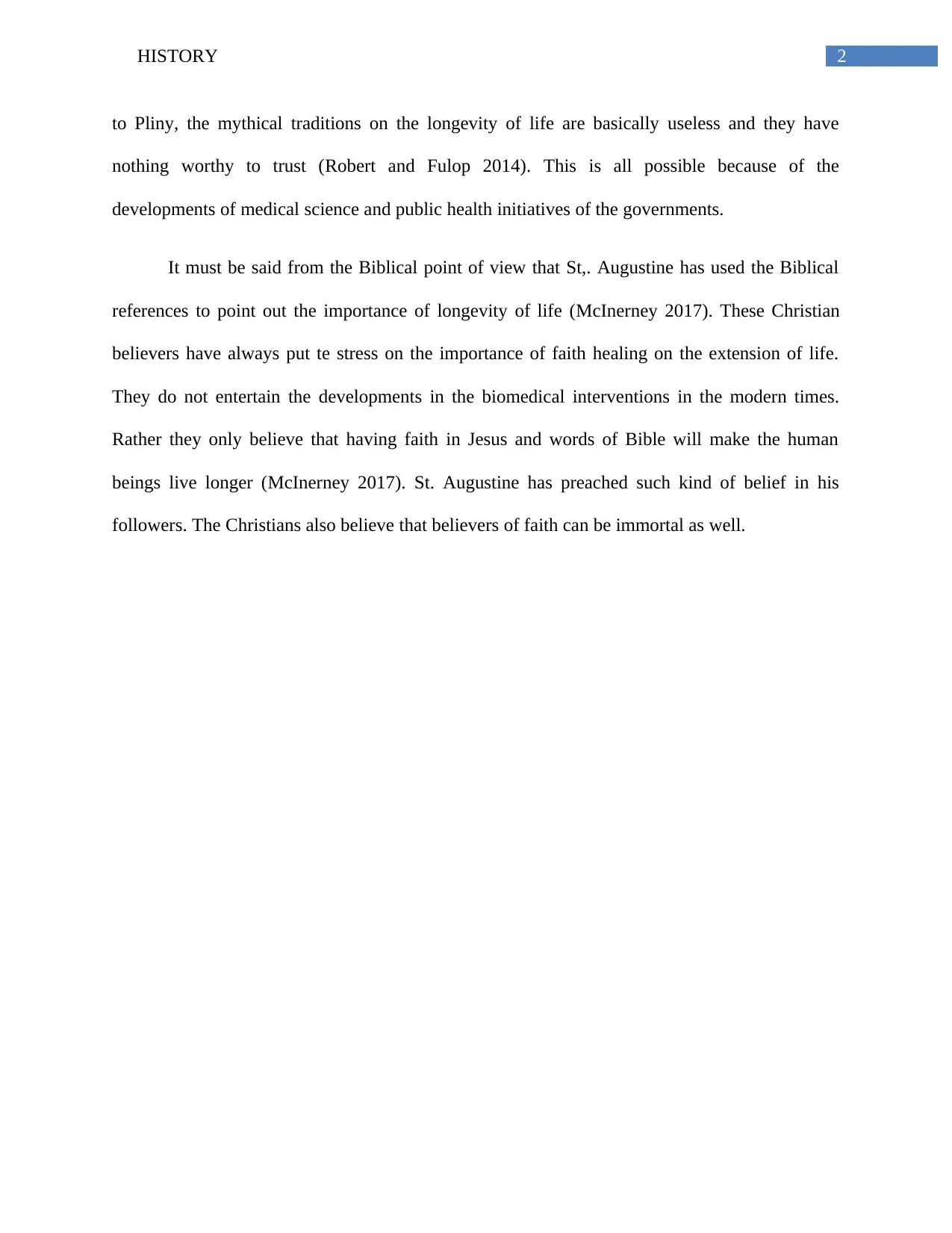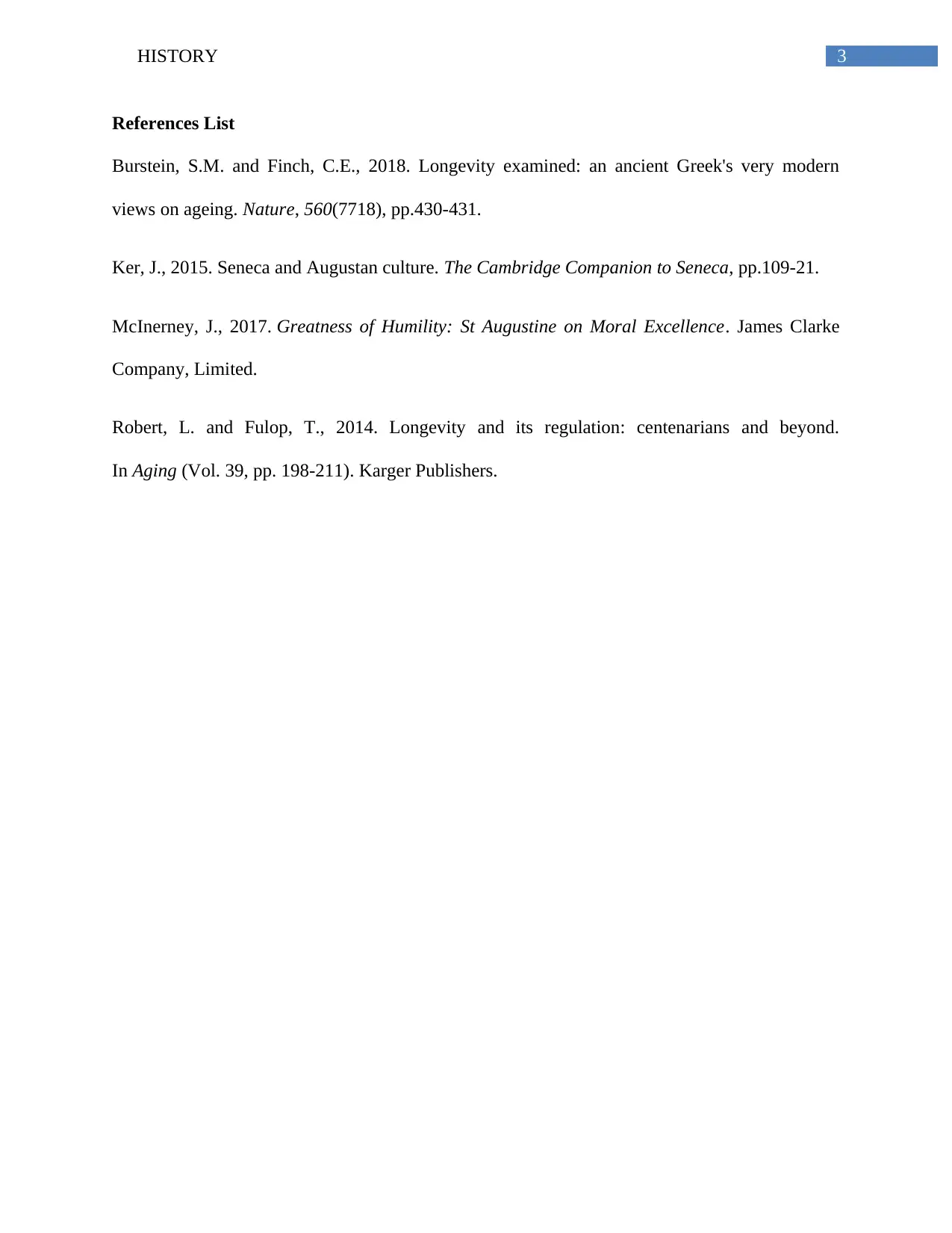Exploring Philosophers' Views on Longevity: History Assignment
VerifiedAdded on 2022/11/18
|4
|715
|240
Essay
AI Summary
This essay explores the diverse perspectives on longevity held by ancient philosophers. It examines the views of Aristotle, who emphasized the importance of a happy mind for a long life, and contrasts them with the Chinese philosophers' focus on physical wellness. The essay further analyzes Seneca's emphasis on the quality of life over its length, and Pliny's reliance on census data to assess life expectancy. Finally, it discusses St. Augustine's Biblical perspective, highlighting the role of faith in extending life. The essay draws on scholarly references to support its arguments and provides a comprehensive overview of the historical and philosophical discourse on longevity.
1 out of 4








![[object Object]](/_next/static/media/star-bottom.7253800d.svg)